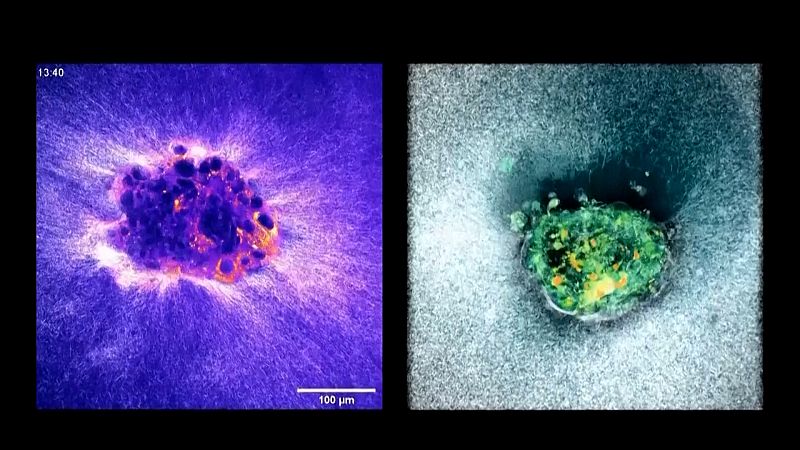Spanish doctors created an artificial womb to solve a major cause of miscarriage

Scientists have filmed a human embryo implanting into womb-like tissue in real time, in what they say is a world-first.
This process early in pregnancy, which is called implantation, has been difficult to observe, with doctors relying on a limited number of still images as there was no constant recording of the process.
Researchers at the Institute for Bioengineering of Catalonia (IBEC) in Barcelona created a realistic mockup of the uterine lining for an embryo, or fertilised egg, to latch onto and simulate an implantation process.
"The human embryos are free-floating forms,” said Samuel Ojosnegros Martos, IBEC’s head of bioengineering in reproductive health.
“They need to attach to the mother, and you lose them until they show up in an ultrasound weeks later. So what happens between day five and the ultrasound is completely [a] black box,” Martos added.
The artificial womb or uterus was made of collagen and proteins, mimicking real tissue. Human embryos donated for research were placed on this lining.
The footage from IBEC shows embryos actively digging and pulling themselves into the womb-like tissue. Healthier embryos pulled more strongly compared to low quality embryos, meaning the force an embryo can exert is key in successful implantation.
"We have discovered that the human embryo is very invasive and it can dig a hole inside the matrix and pull [itself] very strongly,” Martos said.
The researchers repeated the experiment with mouse embryos and discovered that the mouse embryos remained on the surface of the uterus, unlike human embryos actively penetrated the artificial uterine lining.
Why it matters
Implantation is key to sustaining pregnancy. Around 60 per cent of embryos either fail to implant in the womb or are lost shortly after, making it a common cause of miscarriage.
Experts say research like this could help improve the likelihood of successful implantation.
"It's a fascinating study because it's really looking to try and understand why some embryos implant and why some don't,” said Tim Child, a professor of reproductive medicine at the University of Oxford who was not part of the study.
“It's obviously a very difficult part of reproduction to study,” he added.
The study could also help doctors improve success rates for in vitro fertilisation (IVF) treatments.
When an IVF embryo is tested and shown to have the correct genetic material called chromosomes, the chance of implantation can be up to 80 per cent, Child said.
“But it's not 100 per cent. So the question is why don't all embryos implant even if chromosomally normal?"
The point when lab-made embryos are transplanted into the uterus is the “[most common] point of failure,” he added.
Child said that in the future, there may be drugs used to increase the chance of a human embryo implanting into the uterus, thanks to this study.
For more on this story, watch the video in the media player above.
Yesterday

